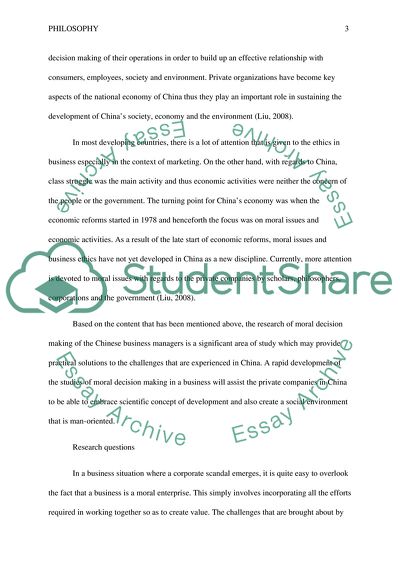Cite this document
(Moral Decision Making of the Chinese Business Managers Essay Example | Topics and Well Written Essays - 2750 words, n.d.)
Moral Decision Making of the Chinese Business Managers Essay Example | Topics and Well Written Essays - 2750 words. https://studentshare.org/philosophy/1818672-qualitative-and-case-study-research-methods
Moral Decision Making of the Chinese Business Managers Essay Example | Topics and Well Written Essays - 2750 words. https://studentshare.org/philosophy/1818672-qualitative-and-case-study-research-methods
(Moral Decision Making of the Chinese Business Managers Essay Example | Topics and Well Written Essays - 2750 Words)
Moral Decision Making of the Chinese Business Managers Essay Example | Topics and Well Written Essays - 2750 Words. https://studentshare.org/philosophy/1818672-qualitative-and-case-study-research-methods.
Moral Decision Making of the Chinese Business Managers Essay Example | Topics and Well Written Essays - 2750 Words. https://studentshare.org/philosophy/1818672-qualitative-and-case-study-research-methods.
“Moral Decision Making of the Chinese Business Managers Essay Example | Topics and Well Written Essays - 2750 Words”. https://studentshare.org/philosophy/1818672-qualitative-and-case-study-research-methods.


